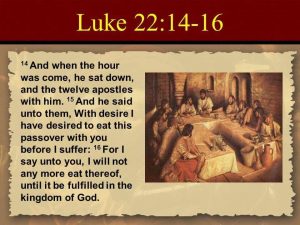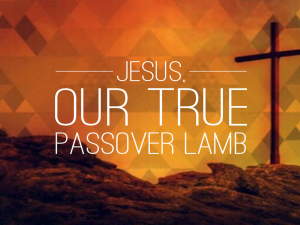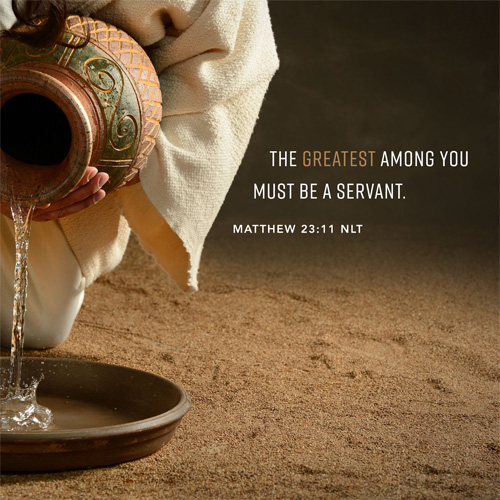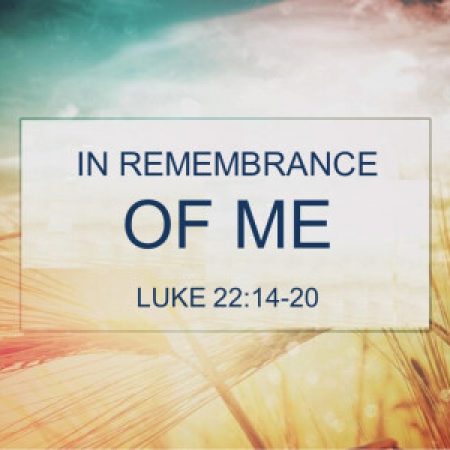 Jesus ate the Passover meal with His disciples, but immediately after that, His disciples argued over which of them is the greatest. Jesus stops them and lets them know who will truly be the greatest in the kingdom. He also tells them of the reward they will get for their faithfulness to Him.(v.14)When the hour had come, He reclined at the table, and the apostles with Him. Now when evening came, Jesus was reclining at the table with the twelve disciples. (Matthew 26:20). When it was evening He came with the twelve. (Mark 14:17)
Jesus ate the Passover meal with His disciples, but immediately after that, His disciples argued over which of them is the greatest. Jesus stops them and lets them know who will truly be the greatest in the kingdom. He also tells them of the reward they will get for their faithfulness to Him.(v.14)When the hour had come, He reclined at the table, and the apostles with Him. Now when evening came, Jesus was reclining at the table with the twelve disciples. (Matthew 26:20). When it was evening He came with the twelve. (Mark 14:17)
For centuries, the Jews had celebrated the Passover feast, commemorating their glorious deliverance from Egypt and from death through the blood of the spotless lamb. How vividly this must all have come before the mind of the Savior as He sat down or “reclined“ with His apostles to keep the feast for the last time.(v.15)And He said to them, “I have earnestly desired to eat this Passover with you before I suffer;
Jesus welcomed this Passover, even though He knew it would be a prologue to his sufferings; he desired it, because it was a step that must be taken before he attained his Father’s glory and man’s redemption. He was happy to do even this part of the will of God.
It meant a great deal to Jesus to spend those hours with His disciples. He loved them in John 13:1 it says “Now before the Feast of the Passover, Jesus knowing that His hour had come that He would depart out of this world to the Father, having loved His own who were in the world, He loved them to the end,” and their presence encouraged Him. He desired to eat it with them so that he could spend a little time with them in private conversation, which was not possible in Jerusalem except on this occasion. He was now about to leave them, but eating this Passover with them before he suffered, would be comforting and help to carry him through his sufferings, and make them easier for him.
 He was the true Passover Lamb whose blood would soon be shed for the salvation of all who would trust in Him. (v.16) for I say to you, I shall never again eat it until it is fulfilled in the kingdom of God.” With this statement, Christ takes his leave of all Passovers, and in so doing indicates that He has done away with all the ordinances of the ceremonial law, of which the Passover was one of the earliest and one of the most prominent. Essentially, He is saying “I will not eat of the Passover, and it will not be celebrated by my disciples, until it is fulfilled in the kingdom of God.’’ It is there that the deliverance of His people, not from Egypt, but from all sin and evil, will have been fully accomplished. It is there that they will, at last, have been fully redeemed. It is there also that the fellowship between himself and all the redeemed will have been perfected. In Revelations 3:21 it says “He who overcomes, I will grant to him to sit down with Me on My throne, as I also overcame and sat down with My Father on His throne..” So how and when was the Passover fulfilled? There were three ways:
He was the true Passover Lamb whose blood would soon be shed for the salvation of all who would trust in Him. (v.16) for I say to you, I shall never again eat it until it is fulfilled in the kingdom of God.” With this statement, Christ takes his leave of all Passovers, and in so doing indicates that He has done away with all the ordinances of the ceremonial law, of which the Passover was one of the earliest and one of the most prominent. Essentially, He is saying “I will not eat of the Passover, and it will not be celebrated by my disciples, until it is fulfilled in the kingdom of God.’’ It is there that the deliverance of His people, not from Egypt, but from all sin and evil, will have been fully accomplished. It is there that they will, at last, have been fully redeemed. It is there also that the fellowship between himself and all the redeemed will have been perfected. In Revelations 3:21 it says “He who overcomes, I will grant to him to sit down with Me on My throne, as I also overcame and sat down with My Father on His throne..” So how and when was the Passover fulfilled? There were three ways:
- Christ death on the following day fulfilled the symbolism of the Passover meal. Passover was both a memorial of the deliverance from Egypt and a prophetic type of the sacrifice of Christ. It was fulfilled when Christ our Passover was sacrificed for us, redeeming mankind. Which we see in 1 Cor. 5:7 which says “Clean out the old leaven so that you may be a new lump, just as you are in fact unleavened. For Christ our Passover also has been sacrificed.” At this point, the Passover was laid aside, because now in the kingdom of God the substance had arrived, and He superseded everything that happened before.
- It was fulfilled in the Lord’s Supper, an ordinance of the gospel kingdom, in which the Passover had its realization, and which the disciples, after the pouring out of the Spirit on Pentecost, frequently celebrated (Acts 2:42, 46). They ate of it, and He is said to sup with them and they with him. Rev. 3:20 says “Behold, I stand at the door and knock; if anyone hears My voice and opens the door, I will come in to him and will dine with him, and he with Me.”
- The complete and final accomplishment of that memorial to liberty will be present in the kingdom of glory, when all God’s spiritual Israel will be released from the bondage of death and sin, and be put in possession of the land of promise.
 In his commentary Norval Geldenhuys says “On the eve of His crucifixion Jesus knows that the whole course of His life of self-sacrifice and humiliation on earth is now drawing to an end. But He also knows that the day will come when He as the Triumphant One will lead His followers to the beautiful heritage of complete redemption and blessedness. This full blessedness which will commence with the end of the age has often been represented by the symbol of the celebration of a Messianic banquet. For this reason, the Savior here refers to the celebration of the feast on that coming day when the sovereign dominion of God has come to full revelation and the redemption shaped by the grace of God, as symbolized in the Passover celebrations, has become a blessed and perfect reality.” The next feast to involve Christ and His redeemed will be the great “kingdom feast” when he returns to establish rule on earth (Luke 22:28-30).
In his commentary Norval Geldenhuys says “On the eve of His crucifixion Jesus knows that the whole course of His life of self-sacrifice and humiliation on earth is now drawing to an end. But He also knows that the day will come when He as the Triumphant One will lead His followers to the beautiful heritage of complete redemption and blessedness. This full blessedness which will commence with the end of the age has often been represented by the symbol of the celebration of a Messianic banquet. For this reason, the Savior here refers to the celebration of the feast on that coming day when the sovereign dominion of God has come to full revelation and the redemption shaped by the grace of God, as symbolized in the Passover celebrations, has become a blessed and perfect reality.” The next feast to involve Christ and His redeemed will be the great “kingdom feast” when he returns to establish rule on earth (Luke 22:28-30).
(v.24)And there was also a strife among them, which of them should be counted the greatest. When it was the right time to eat the Passover meal the Lord sat down (Reclined), probably at the head-end of the table, and the twelve apostles, including Judas, were with him. Though Judas has already been guilty of a blatant act of treason, it is not yet publicly known. But Christ knows, and yet He permits him to sit down with the rest. Then after the meal, he got up, girded Himself with a towel, and washed the disciple’s feet, including Judas. Later that evening, the twelve argue over which of them was the greatest so this lesson on humility and service did not penetrate their hearts.
Immediat ely after the Lord’s Supper strife developed between the twelve over who was the greatest? This was not the first time the subject had come up, anwhd it would not be the last. But in the light of what their Lord had said and done that evening, this latest exhibition was inexcusable. And what was it that kicked off this argument? The Apostle does not say, but we can hazard a guess. Perhaps it was over just how the 13 would be arranged around the table; o will occupy the positions of honor, and in what order of rank? Or perhaps it started over which disciple should wash the feet of the other disciples and of the Master?” (v.24)And there arose also a dispute among them as to which one of them was regarded to be greatest.They argued the subject many times prior to the coming of the Spirit. It was a sad foreshadowing of the strife that Satan would come to sow in the churches. How inconsistent it is that such an instance of pride and vanity can be found in men, who lived so close together and who loved their Master so much.(v.25)And He said to them, “The kings of the Gentiles lord it over them; and those who have authority over them are called ‘Benefactors. It is a terrible indictment of the human heart that immediately after the Lord’s Supper, the disciples argued among themselves about which of them was the greatest! Perhaps with an eye to the succession when their leader is gone. The Lord Jesus was nearby, so He could hear them arguing. When He entered the dispute He was not sharp with them, as might have been expected since He often scolded them for this very thing, but mildly showed them the sin and foolishness of it. He reminded them:
ely after the Lord’s Supper strife developed between the twelve over who was the greatest? This was not the first time the subject had come up, anwhd it would not be the last. But in the light of what their Lord had said and done that evening, this latest exhibition was inexcusable. And what was it that kicked off this argument? The Apostle does not say, but we can hazard a guess. Perhaps it was over just how the 13 would be arranged around the table; o will occupy the positions of honor, and in what order of rank? Or perhaps it started over which disciple should wash the feet of the other disciples and of the Master?” (v.24)And there arose also a dispute among them as to which one of them was regarded to be greatest.They argued the subject many times prior to the coming of the Spirit. It was a sad foreshadowing of the strife that Satan would come to sow in the churches. How inconsistent it is that such an instance of pride and vanity can be found in men, who lived so close together and who loved their Master so much.(v.25)And He said to them, “The kings of the Gentiles lord it over them; and those who have authority over them are called ‘Benefactors. It is a terrible indictment of the human heart that immediately after the Lord’s Supper, the disciples argued among themselves about which of them was the greatest! Perhaps with an eye to the succession when their leader is gone. The Lord Jesus was nearby, so He could hear them arguing. When He entered the dispute He was not sharp with them, as might have been expected since He often scolded them for this very thing, but mildly showed them the sin and foolishness of it. He reminded them:
- That in His view greatness was the very opposite of man’s idea. The kings who ruled over the Gentiles were commonly thought of as great persons; in fact, they were called “benefactors.” But it was only a title; actually, they were cruel tyrants. They had the name of goodness, but their actions did not match the name.
- That to do good is much more admirable than to look great. He wanted His disciples to believe that their greatest honor would be to do all the good they could in the world. They would indeed be benefactors to the world, by bringing the gospel to it.
- That to do good is the surest way to be great. If they have the great honor of being benefactors, they should not look down on what is less, even the lesser honor of being rulers. There was no need for them to strive to be the greatest because they would all be called great for bringing the world its greatest blessing—the Gospel message. That would be a greater blessing to mankind than anything the kings of the earth, that exercise lordship over them, were capable of doing.
(v.26) But it is not this way with you, but the one who is the greatest among you must become like the youngest, and the leader like the servant. This is not what God intended for the followers of Christ.
- .What is the rule Christ gave to his disciples: The one that is considered the greatest among you on account of his age, should not look down on the younger men, because of the lowness of their position and the seeming insignificance of their work. It would be good if he would humble himself and sit with the younger men and get to know them better.The expression “the least,” would seem to be more appropriate than the word ‘younger’ in this instance and more in line with the fact that under normal conditions the Bible, as these men knew it (our Old Testament), regarded old age as honorable and to be held in respect.
- What was the example which he himself gave to this rule: For who is greater, the one who reclines at the table or the one who serves? Is it not the one who reclines at the table? Now Christ treated his disciples just like the waiter treats the customer he serves. He was so far from assuming a high position, or living in luxury, and forcing them to serve and honor Him that He was ready to do them any kindness and service; such as washing their feet.
 Those who desire to be great should take the place of the younger and less-important. And those who desire to be the most important should step into the role of serving others. These revolutionary pronouncements by our Lord completely reversed the accepted traditions of the time, that younger men were inferior to their elders, and that leaders find greatness by mastering others.(v.27)For who is greater, the one who reclines at the table or the one who serves? Is it not the one who reclines at the table? But I am among you as the one who serves. The Lord is telling them that He has taken the lower position. That is what He did when He took my place on the cross. It is like a person getting up from the table and telling his waiter, “you sit down and eat, I will serve you.” When Jesus Christ came to earth, all mankind should have been His servant! Instead, He served mankind. He set a table of salvation and has invited us to this great feast of salvation. In men’s estimation, it was greater to be a guest at a meal than to serve the meal. But the Lord Jesus came as a servant to men, and all who would follow Him must imitate Him in this. True greatness means to be like Jesus and that means being a servant to others. A servant does not argue over who is the greatest, because he knows that he is the least, and he accepts this from the hand of God. Since Christians are to be servants, there is no reason for us to compete with one another for honors and recognition.
Those who desire to be great should take the place of the younger and less-important. And those who desire to be the most important should step into the role of serving others. These revolutionary pronouncements by our Lord completely reversed the accepted traditions of the time, that younger men were inferior to their elders, and that leaders find greatness by mastering others.(v.27)For who is greater, the one who reclines at the table or the one who serves? Is it not the one who reclines at the table? But I am among you as the one who serves. The Lord is telling them that He has taken the lower position. That is what He did when He took my place on the cross. It is like a person getting up from the table and telling his waiter, “you sit down and eat, I will serve you.” When Jesus Christ came to earth, all mankind should have been His servant! Instead, He served mankind. He set a table of salvation and has invited us to this great feast of salvation. In men’s estimation, it was greater to be a guest at a meal than to serve the meal. But the Lord Jesus came as a servant to men, and all who would follow Him must imitate Him in this. True greatness means to be like Jesus and that means being a servant to others. A servant does not argue over who is the greatest, because he knows that he is the least, and he accepts this from the hand of God. Since Christians are to be servants, there is no reason for us to compete with one another for honors and recognition.
We should not mind being servants today, for we shall sit on thrones in the future kingdom! (v.28) “You are those who have stood by Me in My trials; (v.29) and just as My Father has granted Me a kingdom, I grant you (v.30) that you may eat and drink at My table in My kingdom, and you will sit on thrones judging the twelve tribes of Israel.
Christ’s entire life and ministry were filled with temptations, hardships, sorrows, and trials–not to mention the suffering of the cross which he knew was to come.It was gracious of the Lord to commend the disciples for having stuck with Him through all His trials. They were guilty of many mistakes and weaknesses, they were dull and very forgetful, and often blundered, and yet their Master forgives and forgets that because they were faithful. They had just been quarreling among themselves. Very soon they would all forsake Him and flee. And yet He knew that in their hearts, they loved Him and had endured being hauled over the coals for His name’s sake.
They should not struggle for worldly honor and greatness, because He had better things in mind for them; another nature, a kingdom, a feast, a throne, for each of them. Their reward would be to sit on thrones judging the twelve tribes of Israel, a promise given earlier in Matthew 19:28 which says “And Jesus said to them, “Truly I say to you, that you who have followed Me, in the regeneration when the Son of Man will sit on His glorious throne, you also shall sit upon twelve thrones, judging the twelve tribes of Israel.”, when Christ returns to take the throne of David and rule over the earth. Just as surely as the Father had promised this kingdom to Christ, so they would definitely reign with Him over a renewed Israel, that finally accepted Him as the Messiah. During the millennial (one thousand years) reign of Christ, the twelve apostles (Matthias probably replaces Judas Iscariot, Acts 1:15–26) will have governmental authority over the re-gathered twelve tribes of Israel (Jeremiah 23:3–8). These will be literal Jews who live through the Great Tribulation, and perhaps resurrected Old Testament saints as well. Matthew 8:11 says “I say to you that many will come from east and west, and recline at the table with Abraham, Isaac and Jacob in the kingdom of heaven; “
Eating and drinking. Such expressions as “eating and drinking in my kingdom” are part of the symbolism of the joys which God’s children will experience in the new heavens and earth.
Lets pray.


0 Comments